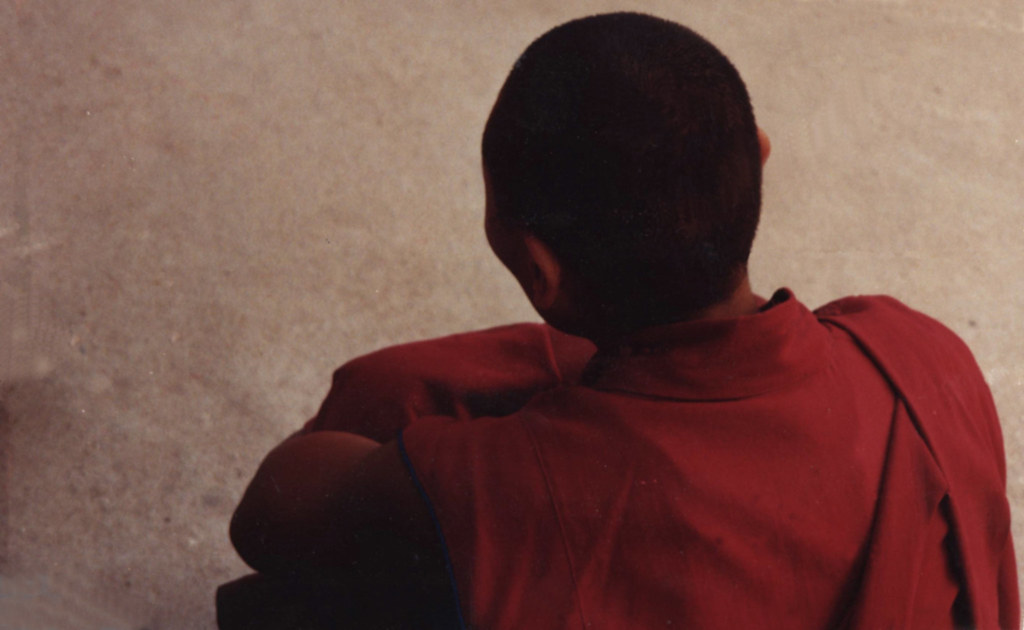Bach cantata 199

…and now we’re talking Desert Island Discs and beyond into Desert Island Afterlife Discs.
The Bach cantatas are, for me, beyond religion. The deeply religious text, in the hands of this man, is as alive as any and, though absolutely not religious myself, I find meaning in it. It is an open door to the spirit. No cross-bearers, mantra-sayers or burka-wearers are refused entry to this church made of sound.
Cantata number 199 – ‘My heart swims in blood’ – is the journey of the agonised sinner, cleansed by her tears and by her ‘confession’, asking and receiving forgiveness from God and finding joy in salvation. For some this text is in their mother tongue whilst for others the language may be incomprehensible or even repel them. However, with the text de-emphasised and the music speaking even more loudly, it seems to me to be universally accessible. If you take away the semantics of it, you have the therapeutic journey from despair to joy: Speaking one’s demons, catharsis, self acceptance and love. If you take the word God out, the cantata ends with:
How joyful is my heart…that my regrets and my pain do not exclude me from love.
The God bit is important though. It takes us further than the ‘me’ and ‘my pain’. Without it you could say the point is missing in the way that (again, for me) the spiritual aspect is often missing in therapy.
The pinnacle of the cantata is the chorale, with a solo cello continuo part. There are three voices: On the bottom there is the bass line, which is the ground. In the middle there is the cello continuo line, which is the turmoil of human emotion, and above there is the soprano line, a slow moving chorale. This could be said to be the spirit. In Buddhist terms you could say that the continuo line expresses the mind being pulled hither and thither by thoughts and emotions whilst the chorale expresses the still depths of pure mind.
I watch our Japanese cellist from behind as he spins out the waves of joy and pain of the human realm. His head moves gently from side to side as his shoulders actively work the line, his feet well planted on the floor. The chorale appears above as if out of his hands' very travails. For a moment he looks exactly like a Tibetan monk I photographed from behind in Nepal and suddenly my heart is swimming in love.
The language of organised religions may not be universal, but music, thankfully, is. If music promotes understanding as I believe it can, perhaps through Bach’s music we can gain a new understanding of religion.






7 Comments:
Hi Ruth... from the land of Buddhism I write to remind you that Bach was a Lutheran.... not a Catholic! Steady on, old thing!!
are you leo anonymous? please put your name!!!
anyway thank you for revealing the huge and embarassing chasm in my knowledge. eeek. hopefully have made text general enough to cover my faux pas now....oops.
Ruth, thank you for these beautiful posts about your music. This is the first time I have been able to read someone's response to music that is "in progress." There is an immediacy and a lyricism to your descriptions that I've never seen anywhere else. Please keep posting your responses thus!
Having loved Bach for many years, but mostly as a listener rather than as a player, I have always tended to undervalue the cantatas as potboilers. Yes, I know the famnous ones, and I adore the Christmas Oratorio, but I think the sheer number of the things overwhems me and puts me off. However, your post has duly shamed me, and I shall pay more attention to the cantatas in BBC Radio 3's forthcoming broadcast of the complete bach works (over a week and a bit leading up to Christmas).
Yes, it was leo anonymous... and your text is fine now! - actually it was almost fine before as Bach did set the Latin Mass (in B minor) and used other Liturgical texts in his compositions. It was only really the last line of your piece that seemed to suggest that Bach actually was a Catholic!
thankyou bitteroot.
rob you lucky lucky thing about the broadcast. we shall have to sort something out with broadband. thanks for the reminder.
Thank youf or these reflections on Bach, Ruth. I feel very much the same way about him and his music. Spiritually Bach is always a journey and a comfort for me, although I'm pretty sure my faith is different than his, and it's where I return when I am really in need. Although I am most familiar with the piano works, hymns and chorales, I've performed some of the other vocal works. Studying and performing "Jesu Meine Freude" (which I think is technically a motet, not a cantata?) a few years back was a huge musical and spiritual experience for me. You are fortunate to be able to "live inside" this music as much as you do!
Post a Comment
<< Home